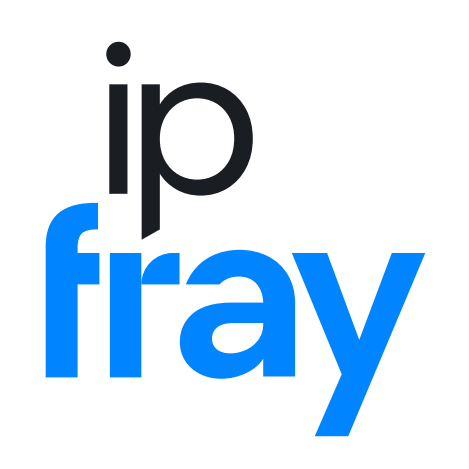Context: There have recently been various standard-essential patent (SEP) license agreements in the industry, including some high-profile settlements, and a limited amount of enforcement actions. On December 14, 2023, the Munich I Regional Court entered final judgment, right at the end of trial, in Huawei’s favor in a WiFi 6 SEP case against Amazon (December 26, 2023 ip fray article).
What’s new: Huawei has just announced multi-year patent license agreements with Amazon (Huawei website) and vivo (Huawei website). No litigation was pending between Huawei and vivo, and that deal involves (among others) 5G patents.
Direct impact: Both companies are important licensees: Amazon because of its status as one of the world’s largest technology corporations in general, and vivo because it’s one of the world’s highest-volume smartphone makers. It’s worth noting that Huawei itself is also a major licensee as it is one of the world’s largest-scale implementers of SEPs. Furthermore, the settlement with Amazon frees up litigation resources.
Wider ramifications: The course of events doubly strengthens Huawei with a view to situatoins in which it has to justify its SEP license terms as being market rates: through license agreements with well-resourced and sophisticated organizations (in vivo’s case without litigation, despite vivo being known to defend itself vigorously when faced with supra-FRAND royalty demands) and a court ruling involving a FRAND defense (which Huawei also obtained against a German defendant named AVM recently).
The two simultaneous announcements combined are a significant milestone for Huawei’s SEP licensing efforts.
While the Munich court was quick to decide in the Amazon case, it then still needed time to provide a detailed written judgment. When ip fray recently asked the Munich court’s press office about a public version of that one, the court had not yet decided on what confidential business information to redact. One can infer from that situation that Amazon entered into the license agreement instead of pursuing an appeal and a motion to stay enforcement pending such appeal.
Decisions on FRAND defenses in parallel cases are sometimes based on disparate reasons, such as a party’s specific behavior in negotiations with one party versus its conduct in another context. Here, last year’s Huawei v. AVM decision by the Munich court (AVM is the market leader in WiFi routers in Germany) contained elements that were dispute-specific but also a holding according to which Huawei’s royalty rates were shown to be FRAND, though AVM tried. Amazon likely took note of that fact as well.
Licensees do not always contribute quotes to press releases on agreements. In one of today’s cases, there is one. Amazon’s IP chief Scott Hayden said:
“Amazon respects Huawei’s worldwide patent portfolio, innovations, and contributions to the standardization process. Amazon also respects Huawei’s efforts to license its patents to companies like Amazon, which frequently use industry technical standards when inventing new products and services for customers”
His counterpart on Huawei’s side, Alan Fan, declared himself “pleased to exchange patent rights with Amazon” and noted that “[p]atent licensing expands the number of companies that can use what otherwise would be proprietary technologies, which, in turn, provides consumers with more innovative products and services.”
All of that indicates that Amazon considered the infringement litigation in Munich part and parcel of the licensing process. It happens in the ordinary course of the SEP licensing business (not all the time, but occasionally) and doesn’t necessarily make a licensor and a licensee enemies.
The announcement of the agreement with vivo stresses “mutual respect for the value of each other’s patents” (Huawei IP chief Alan Fan).
In the current process concerning a proposed EU SEP Regulation, some of those seeking to make SEP enforcement in the EU more cumbersome and expensive resort to a “bogeyman” argument, suggesting that Huawei, because of the strength of its patent portfolio and not being an EU company, represents a particular threat to European implementers.
For instance, the EU Parliament’s rapporteur on the SEP Regulation, Marion Walsmann MEP, called on her colleagues not to “let the Huaweis and Qualcomms of the world decide what happens with European SEPs” (March 4, 2024 ip fray article). In reality, Huawei is forced by the reality of near-parity between its inbound and outbound licensing revenues to take balanced positions as going too far in one direction would hurt the other side of the business. Huawei does not “monetize” patents in the sense of treating patent licensing income as a revenue stream in its own right, but reinvests that income into research and development. Qualcomm is a large U.S. chipset maker and, therefore, also a major implementer. Its business model is distinct from everyone else’s, including Huawei’s.
There is a certain disconnect between the political rhetoric and the reality in the licensing business. Amazon was under no obligation to let itself be quoted in Huawei’s press release, suggesting that it simply drew different conclusions from the developments in the Munich court and from other licensees’ decisions than U.S. router maker Netgear, which preferred the filing of a politically-charged U.S. complaint (February 4, 2024 ip fray article) over a license agreement and which Amazon has now left a bit isolated. While often concluding license agreements without litigation (such as today), vivo has shown its determination to fight for reasonable license fees (even to the extent that vivo left the German market over SEP injunctions).
Today’s announcements likely pave the way for further license deals.
